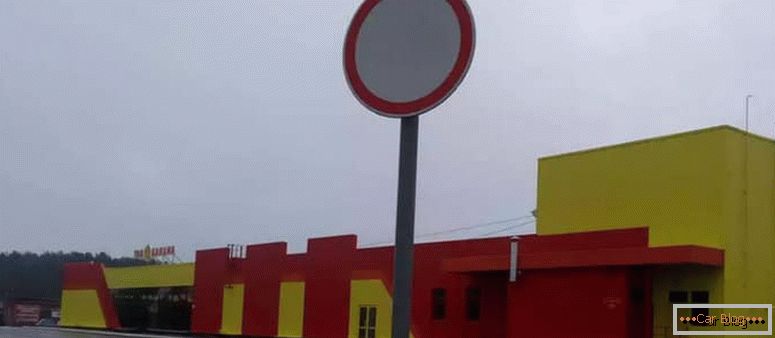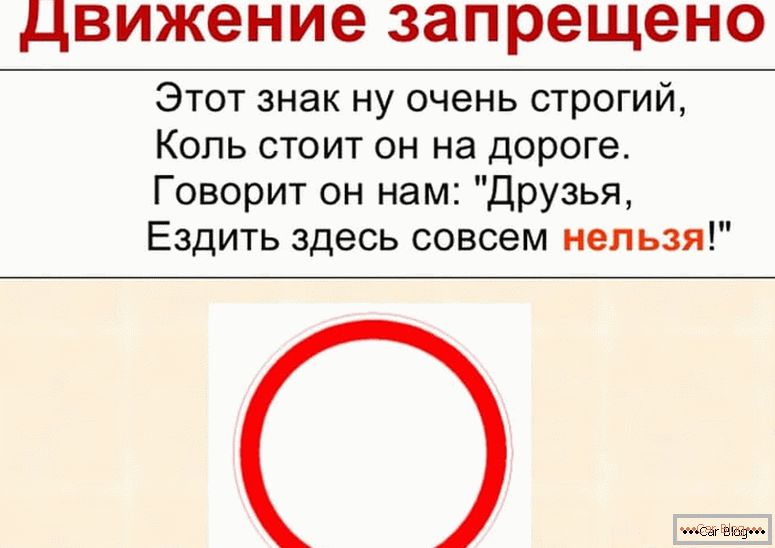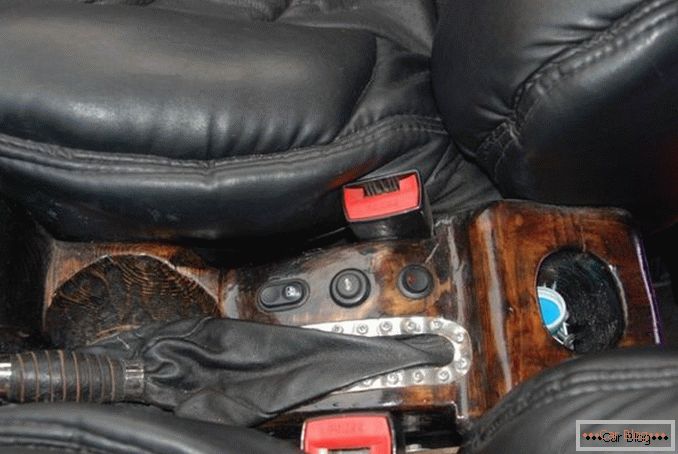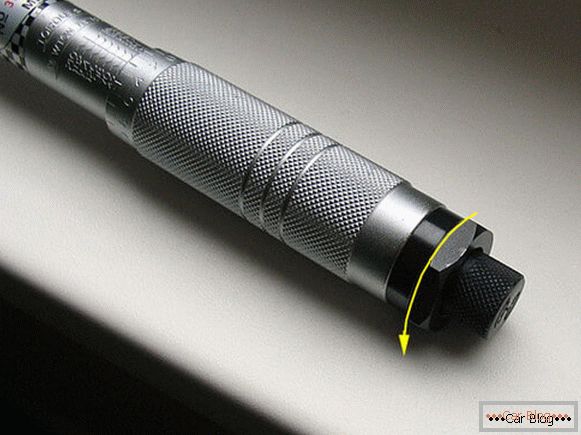Drivers are required to know the Rules of the road, not only in terms of the driveways of various sections of the road, but also the presence of road markings and installed signs. This will help not only to avoid possible fines, but also unwanted damage to the car.
The interpretation of prohibition signs, one of which is the traffic sign “Traffic is prohibited”, often raises questions. It has the number 3.2 in traffic regulations. Previously, this pointer had a different name.
Content
- 1 Features of treatment
- 2 Installation cases
- 3 Permitted Tolerance
- 4 Penalties
- 5 Similar prohibition signs
Features of treatment
Most of the existing signs in the Russian Federation were inherited from the Soviet Union. In connection with the modernization of the entire road system, some concepts are periodically adjusted in accordance with international standards. In this regard, the road sign "Pass-through travel is prohibited" was renamed the prohibitive sign "Traffic is prohibited." Thus its true meaning was emphasized and discrepancies were eliminated.

It is necessary to carefully read the current interpretation of the concept, otherwise you will have to regularly pay a fine for travel under the sign "Travel is prohibited." It is important to understand which part of the road it belongs to, and what specific actions it does not allow on the part of drivers.
It is necessary to know that the pointer 3.2 is not allowed to be installed before turning on a one-way road. Although such an opinion among drivers is not uncommon.
Installation cases
The appearance of the sign is a white circle edged with a red line around the perimeter. There are no symbols inside the circle. In some cases, it is complemented by information signs, located directly below it. They can indicate the interval of action, time of action, etc. Installation is provided in the following cases:
- Drivers are warned that there will be a pedestrian zone on one of the road sections. It is often necessary to install it temporarily for the period of closing the road and holding street events or celebrations.
- Often put a pointer to the places where the road works or carried out repairs infrastructure.
- In some cases, similar signs prohibiting passage are mounted in parallel with the “Dead End” signs. This is common when entering a closed area or before entering a large enterprise.
The set arrows 8.3.1-8.3.3 help clarify the situation. They indicate directions from left to right or forward / backward (up / down). Travel can be blocked on weekends or on weekdays.
Permitted Tolerance
The sign installation must comply with GOST R 52289-2004. However, the presence of a pointer allows a certain type of transport to legally ignore this road informant. There is an exception on the “Movement not allowed” sign, allowing certain categories of drivers to move in this direction.

According to the current rules, exceptions are:
- On the sign 3.2 may not pay attention route vehicles whose path passes along this road.
- Under the index, drivers who have 1 or 2 disability groups have the right to pass. Also, drivers carrying the above persons are equal to this group.
- The list of exceptions includes the vehicles that, according to the agreement, serve the enterprises located in the territory behind the sign. At the same time, drivers must have documentary evidence of this fact (waybill, business trip, etc.).
- Do not worry about car owners living in the area located behind the appropriate sign. In some cases, confirmation of this fact is required. This may be a residence permit from a passport or a lease agreement.
- To the passage are allowed postal special vehicles. A prerequisite in this situation is the presence on the body of a white diagonal strip on a blue background.
Need to know! Vehicles admitted to the passage through the territory, marked with 3.2, must enter it and leave it only at the nearest intersection.
Penalties
For non-compliance with the established road signs, financial penalties are provided. The current penalty for travel under the sign "Traffic is prohibited" is 500 rubles for 2017. In some cases, drivers may dispense verbally from an inspector.
The relatively low degree of punishment is fairly easy to explain. The section marked with the appropriate sign does not apply to the road with a special traffic intensity. An offender who has been allowed to breathe under the ban practically does not create any special obstacles for other road users.
See also: Penalty for stopping at a pedestrian crossingSome drivers go for a certain trick. They indicate to the inspector their place of residence in the area or place of work. Since, according to the rules, this action is permissible, a law enforcement officer may release the driver.
To avoid lengthy disputes about the permission of the passage, it is necessary to stock up in advance supporting documents. In certain cases even their copies will be suitable.

Formally, the rules prohibit the through passage of the marked territory. Accordingly, it is possible to drive in under the sign, but it is impossible to drive out from under it (its zone of action). Such reading of the legislation has the right to exist.
Similar prohibition signs
On the road there are also signs prohibiting the movement of certain categories of vehicles. These symbols include, for example, the sign 3.4. It makes the further movement of trucks with a permitted maximum weight of more than 3,500 kg impossible. For travel under him the driver is fined 500 rubles.
A circle with a red stripe around the perimeter and an auto icon inside, has a number 3.3 in traffic regulations, prohibits the movement of motor vehicles. All vehicles with engines, with the exception of mopeds, tractors, all-terrain vehicles and self-propelled vehicles, are banned.
For the signs described there are exceptions, which include minibuses, vehicles for people with disabilities (1st and 2nd group), official and personal transport of citizens living in the territory.



